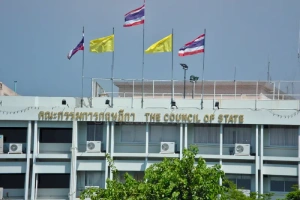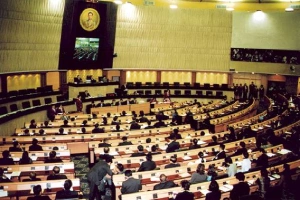 Thailand’s Office of the Council of State has released draft rules considering the legalization of casinos, with public feedback to be expected by August 18, 2024. The move aims to revamp the country’s attractiveness as a touristic destination, draw foreign investments, and boost tax revenue.
Thailand’s Office of the Council of State has released draft rules considering the legalization of casinos, with public feedback to be expected by August 18, 2024. The move aims to revamp the country’s attractiveness as a touristic destination, draw foreign investments, and boost tax revenue.
As reported by Thailand Business News, the casino licenses’ validity will be 30 years, with the opportunity for renewal for another 10 years. The casinos will be housed in large-scale entertainment complexes, equipped with hotels, conference centers, and other amusement facilities. The Thai government determines the potential venues for the entertainment complexes, which include Chiang Mai, Chonburi, Greater Bangkok, and Phuket.
The gambling venues should not exceed 5% of the total area of the entertainment complexes, as stipulated in the draft legislation. Huge international operators such as Galaxy Entertainment Group, Las Vegas Sands Corp, and MGM Resorts International have expressed interest in the potential business opportunity, with a minimum requirement of paid-up capital of THB 10 billion (US$285 million).
The government’s plans are consistent with a more extensive liberalization policy involving the decriminalization of cannabis and the legalization of same-sex marriages. In the broader international context, the country aligns with other jurisdictions such as the United Arab Emirates and Japan that also progress with plans for casino industry regulation.
Feasibility Study Recommends Legalizing Thailand’s Casino Industry
 Earlier this year in March, Thailand’s House of Representatives endorsed a report recommending the legalization of the casino industry. According to it, the sector would generate approximately $12 billion in tourism revenue.
Earlier this year in March, Thailand’s House of Representatives endorsed a report recommending the legalization of the casino industry. According to it, the sector would generate approximately $12 billion in tourism revenue.
Presently, 20% of Thailand’s labor force is involved in tourism. The expanded entertainment opportunities in the Southeast Asian country would bring about the creation of more jobs across various sectors, including construction, casinos, and management.
Furthermore, the legislative proposal includes a competitive tax rate of 17% imposed on gross gaming revenue, which would enhance Thailand’s attractiveness as a gaming destination in the region.
Last but not least, the government aims to effectively reduce the share of illegal gambling. Thailand’s Prime Minister, Srettha Thavisin, has been proactive in promoting the legalization of the casino industry and boosting the nation’s appeal as a tourist destination. Besides curbing the operation of illegal gambling venues, the move would ensure proper regulation, more transparency, and better consumer protection.
As per a report by The Bangkok Post, the Prime Minister shared his support for the development of integrated resorts as a way to crack down on the “gray economy”: “It is time for our society to stop hiding the gambling, which is out there, and just properly regulate and take care of it.” Meanwhile, as the government progresses with the process of legalization, those unlawful businesses must be suppressed, he declared.